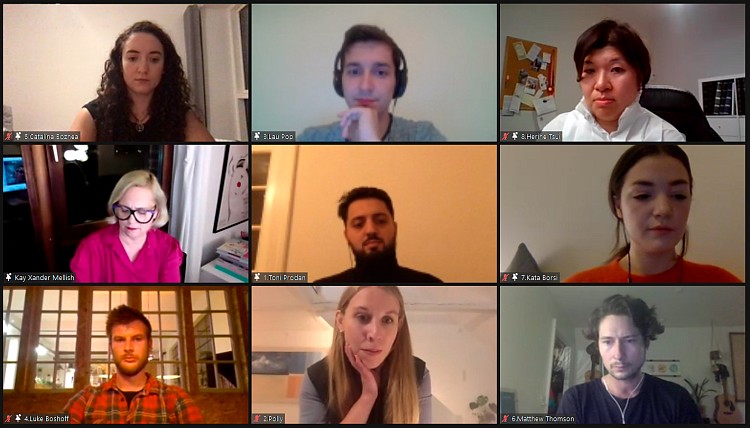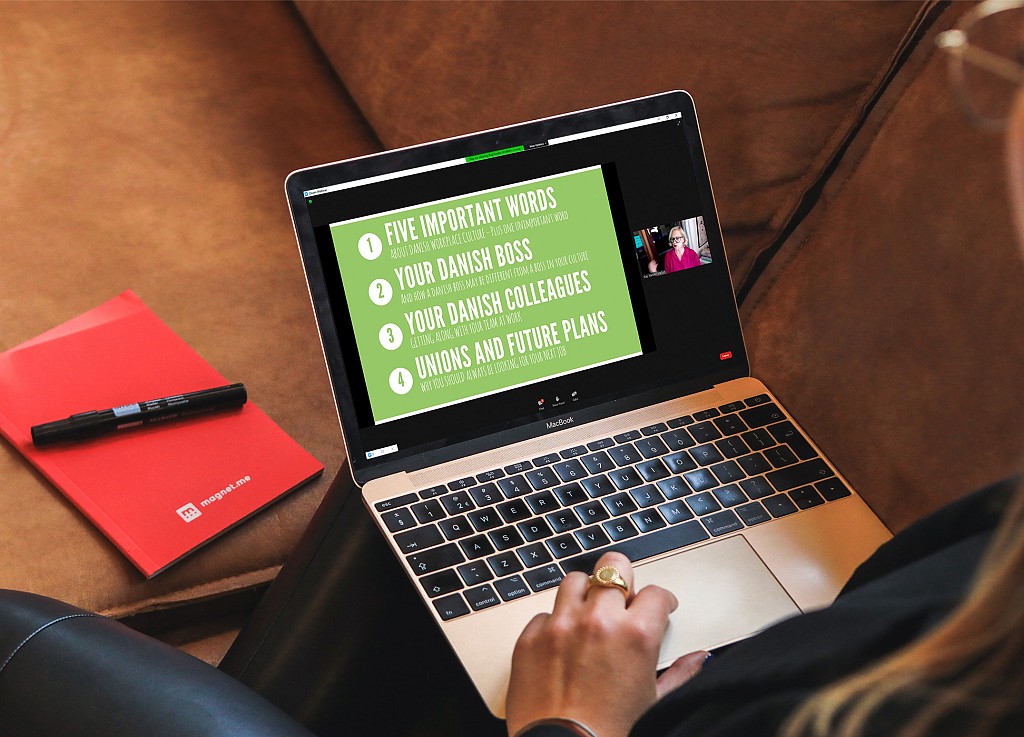Are you ready for a labour market with a flat organisational hierarchy where sarcasm, failure cakes and shared successes go hand in hand with bosses who clean up after breakfast and have the door open to sparring? Here is an intro to the Danish labour market from American Kay Xander Mellish.
On Wednesday 11 November, KEA once again held the event Made@KEA for students and alumni. This time the focus was on international programmes and on what you as a foreigner need to know about Danish workplaces. Kay Xander Mellish, who moved to Denmark from the USA in 2000 and who has since written several books about the Danish labour market, can tell you a lot about this.
Here you will get her observations and advice on the Danish office landscape:
Equality
Equality is hugely important in the Danish labour market. Equality is not about saying that you are equal, it is about showing that you are equal. This means you can watch the boss go to the kitchen and empty the dishwasher or clean up after the shared breakfast.
It also means that you are actually expected to contradict your boss if you think he/she is wrong.
And when you meet people for the first time, they'll most likely just present themselves with their first name - even if they're the CEO of the entire company.
Confidence
Confidence is an important thing in the Danish labour market. For example, if you call in sick, your boss and colleagues trust that you are actually ill and you will not be forced to provide medical certificates, as may be the case in other countries. The same thing applies to your tasks. Danish bosses often show more confidence than elsewhere, and they trust you to do the tasks you have been hired for.
But it's important to emphasise that the trust will disappear if you lie or cheat. So, if you report sick, don't go to a café or go shopping. And if you make a mistake, admit it right away instead of trying to cover it up.
"If you make an embarrassing mistake, then you are expected to buy 'failure beers' for anyone affected by the error. Nowadays it will probably often be in the form of 'failure cakes' if it is during working hours," says Kay.
Time
Time and especially work-life balance is important to keep in mind when starting in a Danish workplace. You don’t need to put a lot of extra hours into your work.
"In fact, your boss might wonder why you can't do your job during normal working hours," says Kay, who also stresses that it's important to respect the time of your colleagues. If you have a lot of colleagues with young children, it's probably not the best idea to have a lot of meetings in the late afternoon where they might pick up children.
According to Kay, respect for time leads to a very direct tone in Danish workplaces, and it can be frightening for foreigners who may be used to criticism and suggestions for changes being wrapped up in positive feedback before and after.
Humour
Humour and Danish sarcasm can be particularly tricky for foreigners, Kay Xander Mellish stresses.
"The Danes don't add 'just kidding!', but as an international employee in a Danish workplace, you may well wonder if it was a joke," says Kay, who says that sarcasm is considered a way of showing intelligence – much unlike in other countries where sarcasm is considered a sign of stupidity.
Humour is a way of showing that you do not take yourself too seriously in the Danish workplace.
Advice
Kay had a number of tips for the international students:
- Ask for help if you need it. Danes would love to help, but only do so if you ask for it.
- Take time for coffee and cake breaks with your colleagues - it's important to be part of the team.
- Do not point fingers if others fail. In Denmark, you succeed as a group and you fail as a group.
- Your next job is just around the corner. In Denmark, you are rarely in the same workplace all your life.

Also attending the event was a panel of eight international alumni who provided their advice to the current students at KEA:
"Take the time to network. It may be difficult to get off the sofa in the evening, but do it anyway. Participate in networking events – it is an investment that will give you a lot back," says Toni Prodan, who has studied Business Economics and IT and now works as a Digital Transformation Consultant at Danske Bank.
Matthew Thomson agrees. He got the dream job at BIG by daring to reach out to a presenter from BIG, whom he had only met briefly:
"As a foreigner in Denmark, it's about not being afraid to ask and reach out. They will say no if they don't have time or aren't interested," said Matthew, who studied Architectural Technology and Construction Management at KEA.
Of course, it can be difficult in the era of Covid-19 to attend events and physical networks, but then the advice from the panel is to reach out via LinkedIn. The important thing here is just to remember the personal greeting – why would you like to connect? Otherwise it doesn't matter and you don't get anything out of it.
If there are some case competitions or hackathons within your field, then it is also a good idea to participate in them. Although there can be many hugely talented participants in case competitions, and it can be difficult to get to the top, it is still a good exercise and it looks good in your portfolio afterwards.
"I participated in a case competition at L’Oréal with my group at KEA, and we took second place in their Nordic competition. It has meant an enormous amount to my CV," says Kata Borsi, who has studied Design, Technology and Business and subsequently the top-up Design and Business at KEA and now works as a Business Development Representative at Queue-it.
In addition, both Kay Xander Mellish and the panellists had one last important piece of advice for the international students.
Join a union.
"The union is fighting for you."




